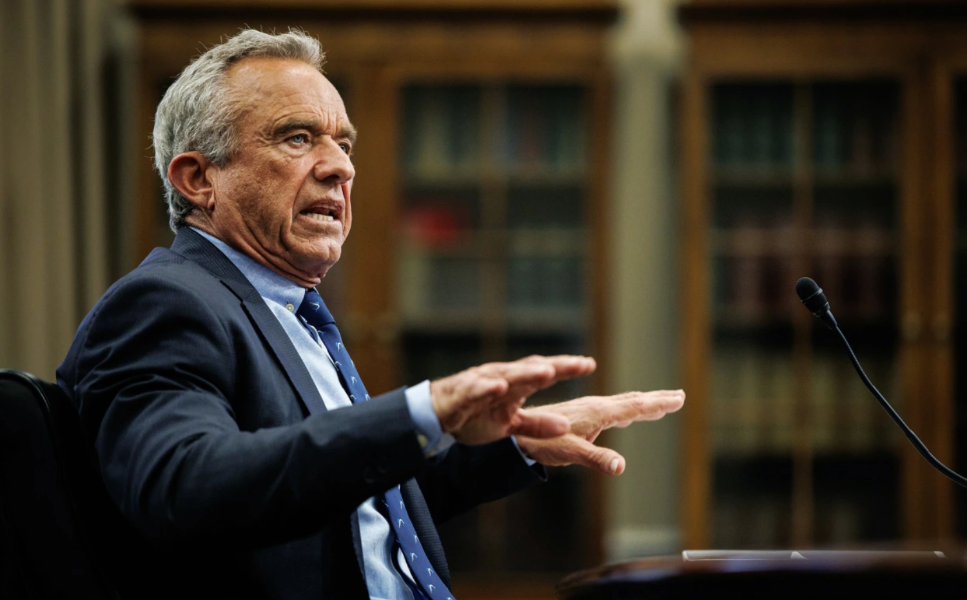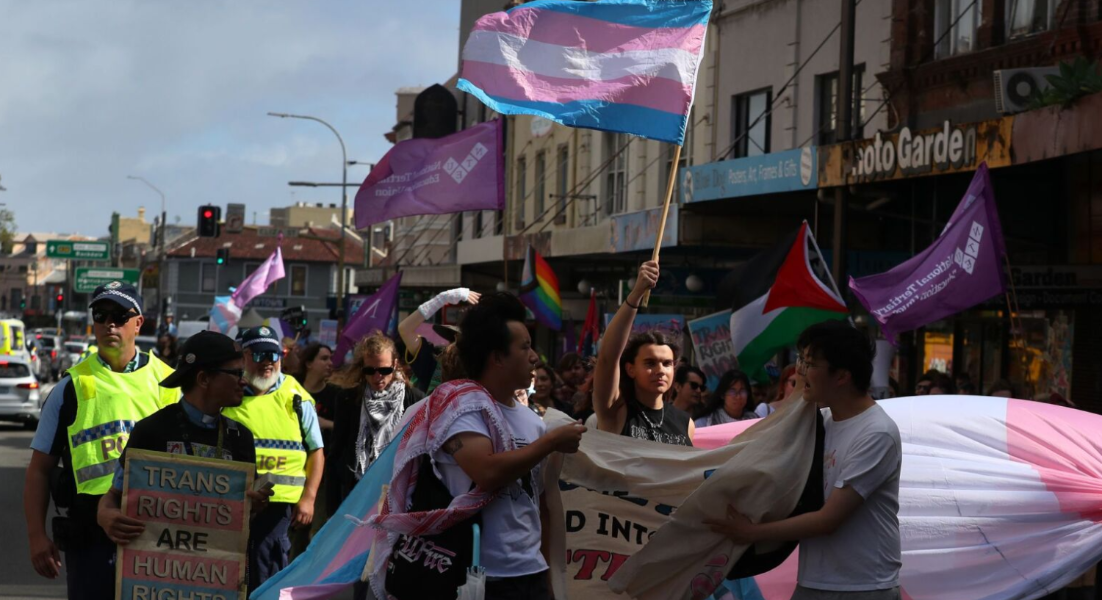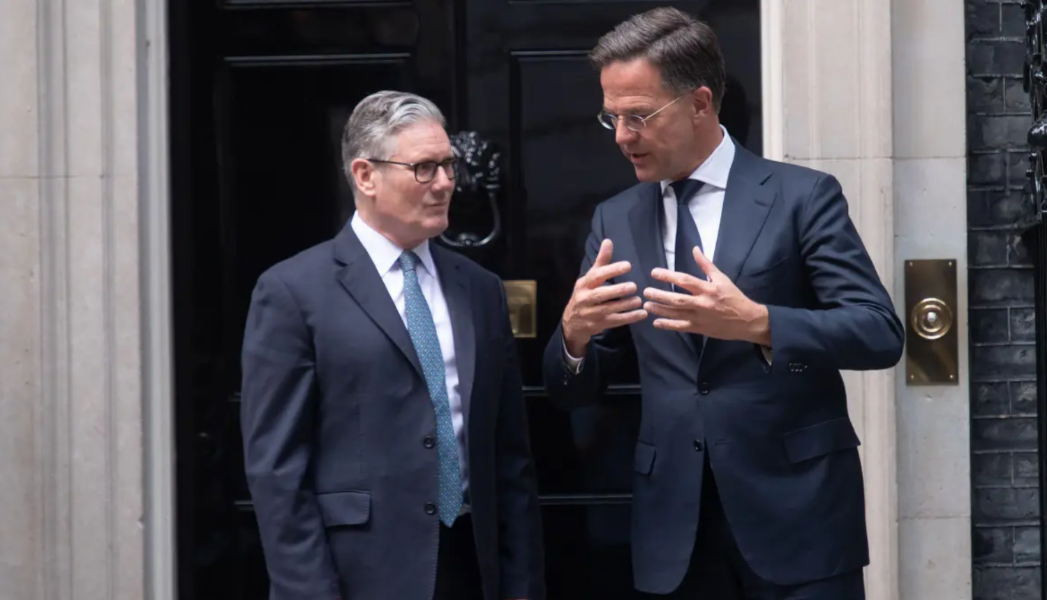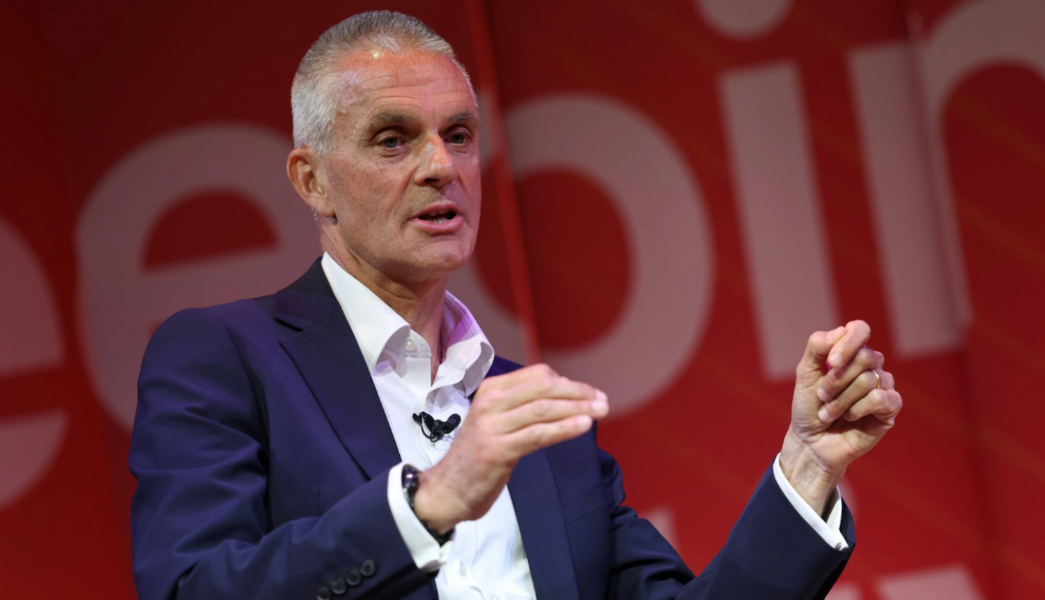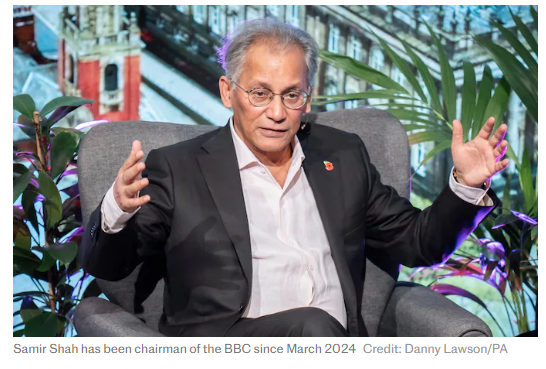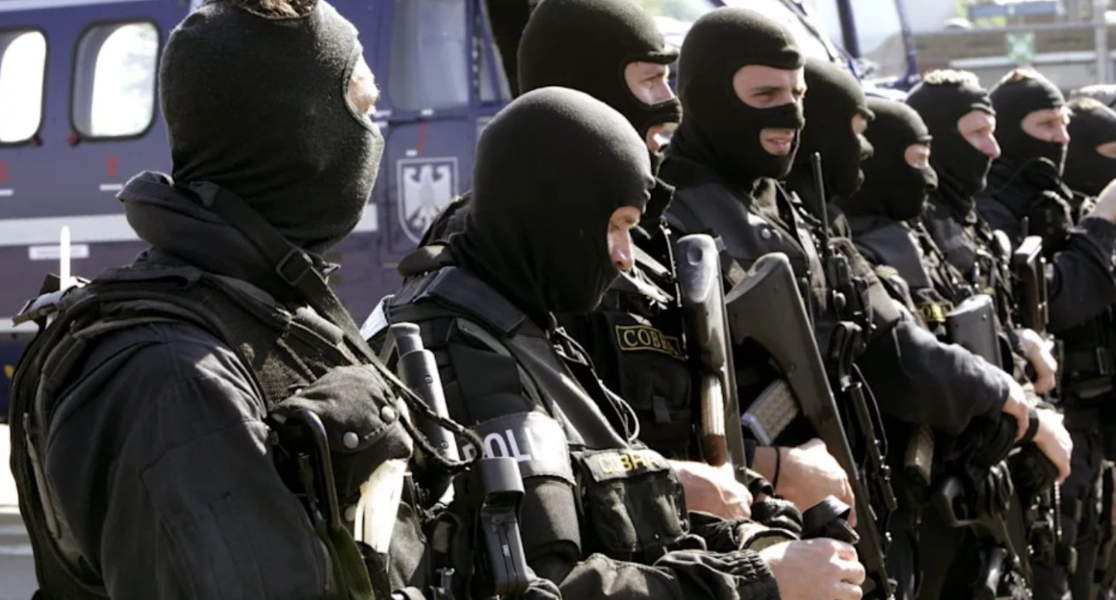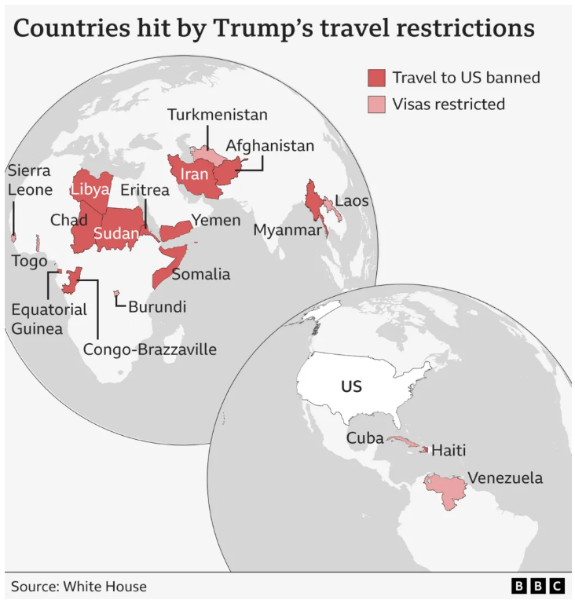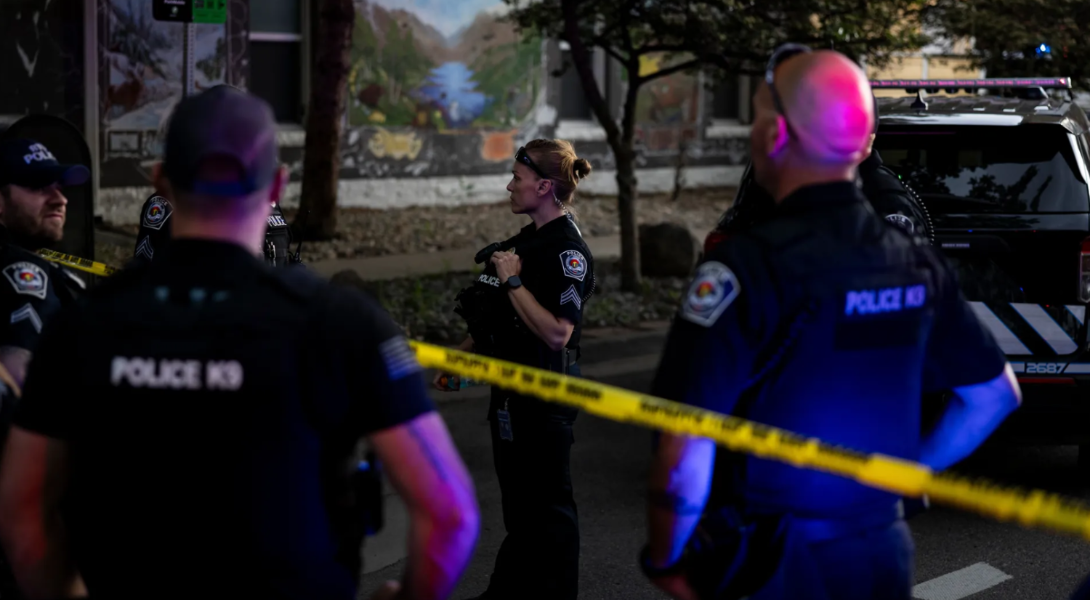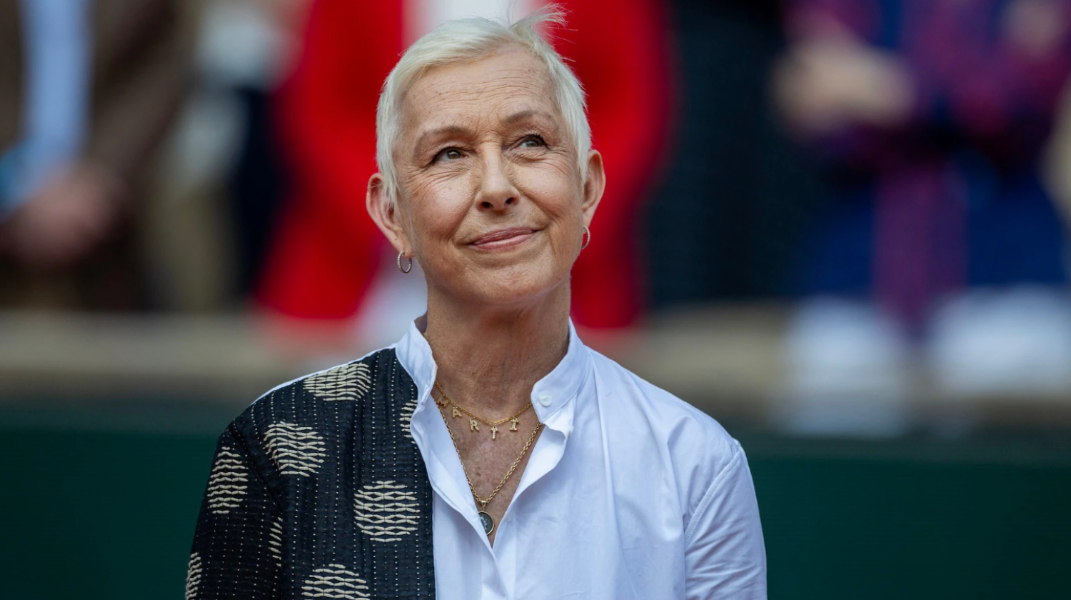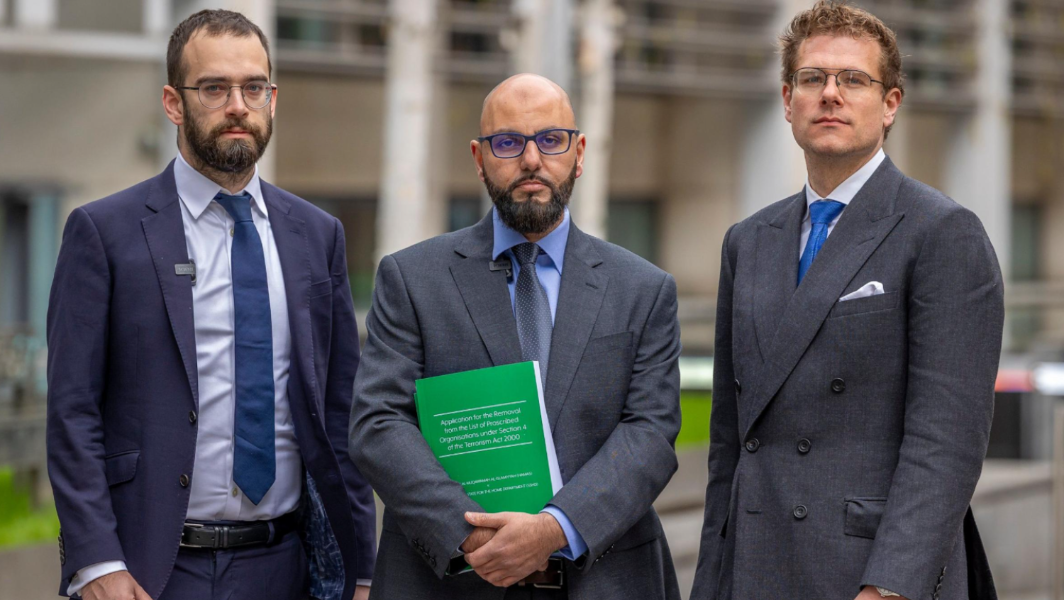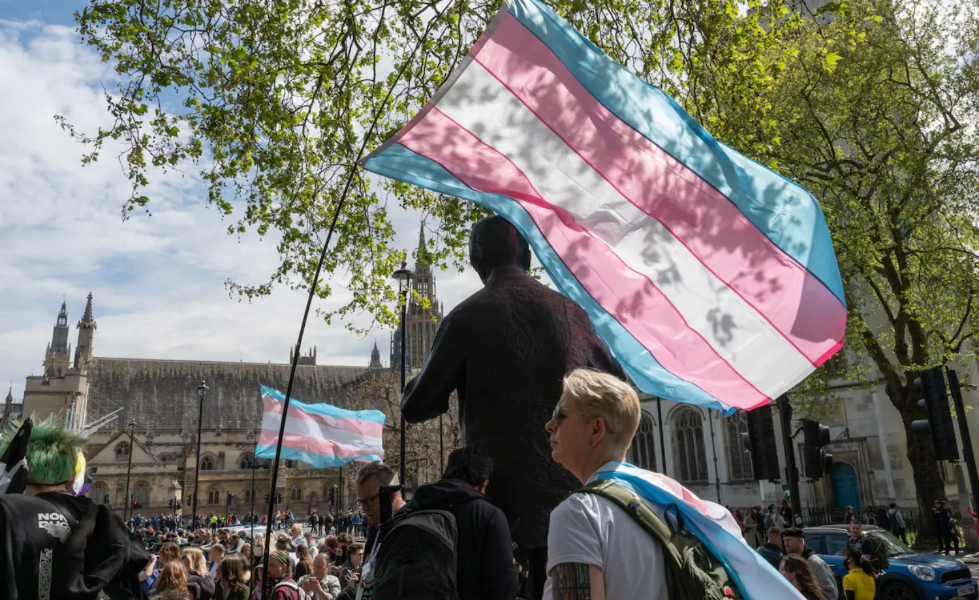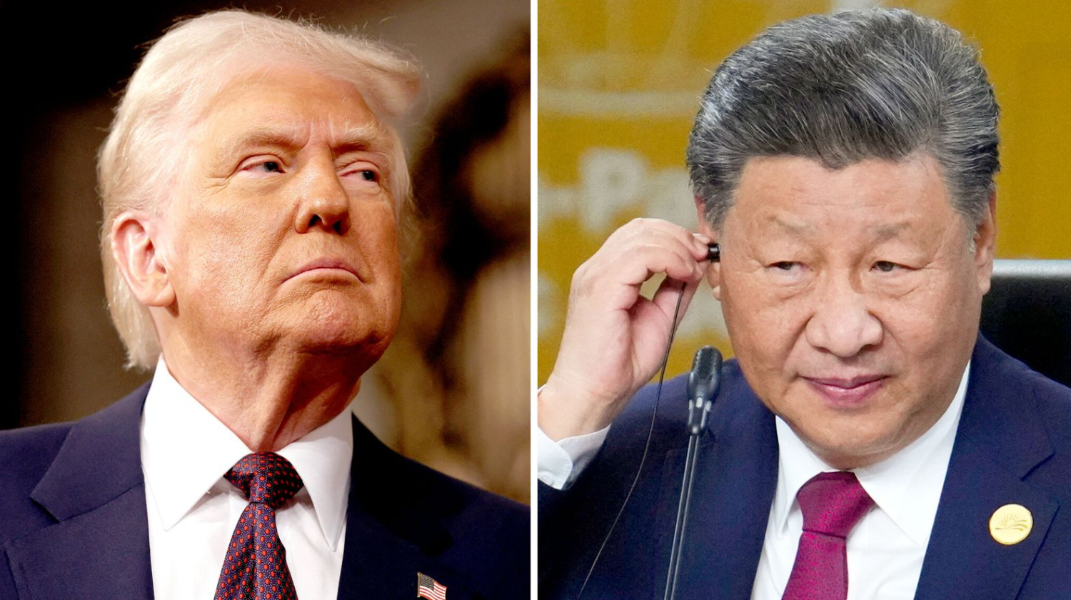-
Posts
10,807 -
Joined
-
Last visited
Content Type
Events
Forums
Downloads
Quizzes
Gallery
Blogs
Everything posted by Social Media
-
Vaccine Policy in Turmoil: Kennedy Ousts CDC Advisory Panel in Controversial Shakeup In a move that has stunned the public health community, Health and Human Services Secretary Robert F. Kennedy Jr. announced the removal of all 17 members of the Centers for Disease Control and Prevention’s (CDC) independent vaccine advisory committee. The decision, revealed Monday through an op-ed in The Wall Street Journal, is being widely criticized as a politically motivated attempt to undermine scientific consensus and vaccine policy in the United States. Kennedy, a longtime figure in the anti-vaccine movement, claimed the Advisory Committee on Immunization Practices (ACIP) was compromised. “The committee has been plagued with persistent conflicts of interest and has become little more than a rubber stamp for any vaccine,” he wrote. The ACIP, composed of leading medical and public health experts, advises the CDC on who should receive specific vaccines and helps determine immunization schedules. Members undergo rigorous vetting and are required to disclose any conflicts of interest, recusing themselves from decisions where appropriate. Kennedy’s sweeping dismissal of the committee has provoked sharp backlash from experts who see the move as an ideological purge rather than a reform. “This is manufactured chaos,” said Dr. Sean O’Leary of the American Academy of Pediatrics. He called Kennedy’s allegations “deeply insulting to the many scientists who contribute countless hours to the process,” insisting that the committee “is, in fact, a model for the rest of the world.” Dr. Mandy Cohen, former CDC director, warned that Kennedy’s unprecedented action “spreads confusion and casts doubt on transparent public health processes that protect Americans.” Echoing that sentiment, Dr. Richard Besser, former acting CDC director and president of the Robert Wood Johnson Foundation, said the decision “should erase any remaining doubt that he intends to impose his personal anti-vaccine agenda on the American people.” Besser cautioned that the dismantling of ACIP would “make it far more difficult for pediatricians and other providers to care for their patients,” who rely on ACIP’s guidance for vaccine recommendations. Kennedy has not disclosed who will replace the dismissed members or when the positions will be filled. A Health and Human Services release confirmed the committee's next meeting is scheduled for June 25 to 27, but offered no further details. In his editorial, Kennedy justified the timing by noting that many members were appointed to four-year terms and would have remained in place until 2028. “Without removing the current members, the current Trump administration would not have been able to appoint a majority of new members until 2028,” he wrote. Some Republican lawmakers, including Sen. Bill Cassidy of Louisiana, expressed concern over the abrupt overhaul. Cassidy noted that Kennedy had promised during confirmation hearings to maintain ACIP “without changes.” He stated Monday on X that he will “continue to talk with Kennedy to ensure ACIP is not filled up with people who know nothing about vaccines except suspicion.” The policy shift comes amid a rise in vaccine-preventable illnesses across the country, including measles and whooping cough. Since last fall, 241 mostly unvaccinated children have died from flu-related complications — the highest number for a non-pandemic year since 2004. Experts fear the removal of ACIP may further erode public trust in vaccination guidance. “To claim that you are doing this to restore faith in CDC is a special form of gaslighting,” said one CDC employee, speaking anonymously for fear of retaliation. An ACIP member, also speaking on condition of anonymity, said the decision could render the CDC irrelevant on vaccine policy. “The clear implication is that CDC will no longer be credible in the space of vaccination,” they said. “Insurers and other funding agencies will have to turn to the professional associations for recommendations about vaccines.” Public health scholars argue that Kennedy’s real aim is to replace experienced scientists with individuals more aligned with the Trump administration’s agenda. Matt Motta, a health policy professor at Boston University, said the firings represent “an unequivocally clear attempt to break the promise” Kennedy made not to restrict vaccine access. “What I think Kennedy is doing here is attempting to replace career civil servants with scientific expertise with those who may be more amenable to his and the Trump administration’s agenda,” he said. As vaccine confidence falters and infectious disease threats rise, Kennedy’s reshaping of national vaccine policy is drawing intense scrutiny — and raising profound questions about the future of public health governance in America. Adapted by ASEAN Now from NBC News 2025-06-11
-
Greta Thunberg and the Cult of the Omnicause: When Activism Becomes Performance Greta Thunberg’s recent foray into the Gaza crisis has raised eyebrows for what many see as a shallow, symbolic gesture rather than a meaningful act of humanitarian aid. Her high-profile sea journey to deliver assistance to Gaza was less a mission of substance and more a carefully orchestrated media performance. Critics argue that, like many of her peers in the activist community, Thunberg is more driven by optics than outcomes. Her latest move seems emblematic of a broader trend among younger activists who hop from cause to cause, capturing moments for social media while glossing over the complexity of the issues they claim to champion. Thunberg’s voyage into a war zone may have been ill-conceived from the start. Symbolism clearly trumped strategy. The stark irony, as noted by critics, is that Thunberg—known for her outspoken views, uncovered legs, and freedom to speak—would not be granted such liberties by Hamas, the very regime controlling Gaza. But such contradictions seem secondary to the goal of seizing the moral high ground. Activists like Thunberg seek to claim all of it, often with muddled logic. Sailing into an active war zone as a symbolic protest is not just naive—it borders on delusional. This mission, labeled by Thunberg and her team as an "aid boat," ultimately served more as a prop in a larger narrative. Detainment by Israeli forces, which she described as “kidnapping,” was seemingly anticipated. She even had a pre-recorded video ready in case of such an encounter. However, reality undercut her messaging: the viral image of Thunberg smiling while receiving a pastrami sandwich from an Israeli soldier stood in stark contrast to the devastating footage of real hostages being taken by Hamas on October 7—girls with bloodied clothing, injured bodies, terrified civilians. Reports suggest the Israeli Defense Forces intended to show Thunberg and her crew graphic footage from that day, underscoring the grim disparity between her symbolic activism and the brutal reality of the conflict. Reports are she and the other activists refused to watch it, their false equivalence of claiming to be kidnapped would not then be quite so appropriate. Thunberg’s journey from climate protester to political generalist reveals much about the evolution of youth activism in the digital age. Her early speeches in national parliaments and appearances at summits like Davos electrified audiences and gave her a powerful symbolic role. But over time, that symbolism has been stretched thin, applied to cause after cause in a seemingly random sequence. What once felt urgent and authentic now risks feeling performative. The Left, as observed by some, has morphed into a loose coalition of disparate movements—climate activism, trans rights, Palestinian solidarity—stitched together into what has been dubbed the "omnicause." The term emerged in 2023 to describe a form of activism that sacrifices focus for breadth. Whether it's campaigning for animal rights or prison abolition, the omnicause dilutes the individual weight of each issue. Specifics are lost in favor of easy-to-share, emotionally charged images that trend well but often lack nuance or context. Younger protest groups like Just Stop Oil—now rebranded as Youth Demand—have pivoted away from headline-grabbing tactics like soup-throwing to embrace broader causes like Gaza, all while remaining largely silent on other global crises such as the famine in Yemen or violence in Sudan. There may be valid links between climate instability and armed conflict, as some scholars suggest in the case of Syria, but the omnicause rarely accommodates such depth. Thunberg’s latest stunt felt particularly hollow when footage surfaced of her fellow protesters throwing their expensive smartphones into the sea as Israeli forces approached. So much for environmental stewardship. This is what happens when protest becomes performance: logic and consistency are sidelined in favor of dramatic imagery. The omnicause thrives not on clarity but on virality, closer to theatre than thoughtful activism. While this voyage may be over for Thunberg, there’s little doubt she’ll soon be aboard the next trending movement that comes her way. Related Topics: Greta Thunberg’s Gaza Aid Voyage Sparks Controversy After Senator’s Mocking Remark Undercover with Youth Demand: A New Era of Radical Protest and Political Ambitions Just Stop Oil Declares Victory and Ends Direct Action Campaign in London Adapted by ASEAN Now from The Telegraph 2025-06-11
- 64 replies
-
- 16
-

-

-

-

-

-
Government Reverses Course on Winter Fuel Payments, Expands Eligibility for Pensioners In a significant policy shift, Chancellor Rachel Reeves has announced that more than three-quarters of pensioners in England and Wales will now qualify for the winter fuel payment, following widespread criticism and political pressure. The reversal means that nine million pensioners earning £35,000 or less annually will be eligible for the payment, which is worth up to £300 and intended to help cover energy costs during the winter months. Previously, the payment was restricted to those receiving pension credit, a limitation that was widely blamed for Labour's disappointing performance in recent local elections. Acknowledging the public backlash, Reeves stated, "We have listened to people's concerns." The Chancellor emphasized that the government’s improved fiscal management made the expansion possible, saying, "Because of changes we've made and the stability we've brought back to the economy, we are able to increase that amount." Despite the government’s assertion that the new income threshold ensures "no lower or middle-income pensioners will miss out," critics have not held back. Conservative leader Kemi Badenoch derided the move as a "humiliating U-turn," highlighting the political pressure that led to the change. The move comes just days before Reeves is set to unveil the government’s much-anticipated Spending Review on Wednesday. That review will set departmental budgets for the next three years and outline investment plans through to the end of the decade. Although the government signalled its intention last month to widen eligibility for the winter fuel payment, the absence of concrete details led to mounting speculation and criticism. This ambiguity threatened to overshadow the upcoming Spending Review, which Reeves has said will focus on fiscal discipline and targeted investment. During a recent speech in Manchester where Reeves promoted a £15.6 billion funding package for local transport infrastructure, she was repeatedly pressed for clarification on the winter fuel policy. Though she confirmed changes would be in place for this winter, no specifics were offered at the time. Even as recently as Sunday, Science Secretary Peter Kyle was unable to provide further details, telling Sunday Morning with Trevor Phillips that the full eligibility criteria would be revealed "in the run up to the autumn." While charities have largely welcomed the change in policy, they argue it falls short of what's truly needed. Simon Francis, coordinator of the End Fuel Poverty Coalition, praised Reeves for reversing the original decision, saying she had "seen sense." However, he also urged the government to "focus on how it supports all households in fuel poverty," not just pensioners. One major question remains unanswered: how will the expanded benefit be funded? The financial implications of the new eligibility threshold are expected to be addressed in the autumn budget. Until then, concerns about funding and the overall strategy to combat fuel poverty will likely persist. With the Spending Review looming, Whitehall insiders have warned that the budgeting process could become contentious. As one official reportedly put it, they expect the review to be "ugly." Nonetheless, the government hopes the revised winter fuel policy will ease financial pressures for millions of older Britons while shoring up its own political standing ahead of a challenging fiscal season. Adapted by ASEAN Now from BBC 2025-06-11
-
Australia’s Wake-Up Call: A Landmark Case Challenges the Transgender Medical Orthodoxy Australia may finally be confronting a difficult question that the UK and US have been wrestling with for years: how far should society go in affirming a child’s claimed gender identity, especially when it involves irreversible medical interventions? As reported in the Australian a family court ruling in Melbourne might be the turning point. It’s being compared to the UK’s Tavistock scandal — and not without reason. At the centre of the case is a 12-year-old boy whose mother supported his desire to be administered puberty blockers so he could begin a transition to live as a girl. The boy, already wearing girls’ underwear and encouraged by his mother in his gender exploration, was met with firm resistance from his father. Although the father did not oppose his child exploring gender identity, he opposed any medical intervention at such a young age. Judge Andrew Strum, presiding over this deeply personal and contested family matter, made a bold and unprecedented decision: he stripped the mother of custody and issued a sharp rebuke of the hospital that treated the child. This marks the first serious legal challenge to the prevailing gender-affirming treatment model in Australia. Central to the case was Dr Michelle Telfer, head of medicine at Melbourne’s Royal Children’s Hospital (RCH), who supported the mother’s stance. Dr Telfer is a prominent advocate for gender-affirming care and the lead author of the RCH’s guidelines, which include early use of puberty blockers, hormone therapy, and even double mastectomies for girls as young as sixteen. Astonishingly, the hospital has accepted children as young as three for gender treatment. Judge Strum, however, took a notably different view. “I do not accept that the child, at this age and pre-pubertal stage in life, can properly understand the implications, and potential risks, of puberty blockers,” he stated in his judgment. “The child is still a child, and not even, if it matters, a teenager.” His comments reflect a growing international concern about the ethical implications of allowing minors to make life-altering medical decisions that may have long-term health consequences. Dr Telfer’s courtroom arguments did little to reassure. She argued that transgender children and their families were “best placed to know what is in their interests” and controversially compared the Cass Review’s findings — which questioned the scientific basis of puberty blockers — to Nazism. Judge Strum dismissed such hyperbole and reaffirmed the need for caution. “At this stage in the child’s life, all options should be left open, without any acceptable risk of harm to the child,” he said. He also questioned how the RCH’s guidelines had come to be regarded as “best practice” without any formal approval from state or federal authorities. “It did not have the approval… of the commonwealth or any state or territory government,” he wrote, noting that Dr Telfer’s conclusions seemed “tantamount to her agreeing with herself.” The implications could be significant. RCH has seen a dramatic increase in patients presenting with gender dysphoria — from 100 in 2014 to over 1,000 by 2022 — and has prescribed puberty blockers to many of them. Judge Strum noted that “no alternative treatment options” were provided, a practice that is now coming under scrutiny as global medical consensus shifts away from aggressive early intervention. Australia, long a laggard in this debate, is catching up. In January, the federal Labor government announced an inquiry into the treatment of transgender children, particularly focusing on the use of puberty blockers. This followed Queensland’s decision to pause their use entirely — the first Australian jurisdiction to do so. Just nine months ago, it seemed unthinkable that Australia would question trans medical orthodoxy. Back then, a judge ruled in favour of a trans-identifying man in Tickle vs Giggle, finding that excluding him from a women-only app amounted to discrimination. The idea that “sex is changeable and not necessarily binary” seemed to prevail. But Judge Strum has steered the conversation in a radically different direction. Every serious investigation of puberty blockers and hormone treatments has revealed more questions than answers — and more harm than benefit. Those who championed these interventions now face a reckoning. For the first time, Australia appears ready to ask the hard questions and push back against an ideology that has gone unchallenged for too long. Adapted by ASEAN Now from The Australian 2025-06-11
-
In a stark warning that underscores the growing threat from Russia, NATO Secretary-General Mark Rutte has told the United Kingdom that unless it substantially increases defence spending, it risks facing the consequences of an emboldened Kremlin. “If you do not do this, if you would not go to the 5 per cent, you could still have the National Health Service, the pension system et cetera, but you had better learn to speak Russian,” Rutte said. The former Dutch prime minister made the remarks ahead of a crucial NATO summit scheduled for June in The Hague. The summit is expected to formalize new targets for core defence spending, raising the threshold to 3.5 per cent of GDP with an additional 1.5 per cent allocated for military infrastructure. Rutte’s warning to the UK and other member nations reflected increasing alarm over President Vladimir Putin’s military ambitions and the accelerating pace of Russia’s weapons development. “All NATO countries are on the eastern flank now,” Rutte declared, noting that Russia’s advanced missile systems can now reach western NATO nations within minutes. He emphasized the widening military imbalance, stating, “Russia is producing more ammunition in three months than the whole of NATO turns out in a year.” According to Rutte, this gives Russia the potential to mount a credible attack against NATO territory within three to five years, regardless of the outcome of the war in Ukraine. Even if peace were achieved in Ukraine, Rutte warned, the underlying threat would persist. “The danger will not disappear,” he said, explaining that Putin has reorganized the Russian economy around sustained military production, with technical support from China playing a key role. “We see in Ukraine how Russia delivers terror from above, so we will strengthen the shield that protects our skies,” he added, calling for a 400 per cent increase in spending on air and missile defences. When asked whether he believed tax hikes were necessary to fund such a dramatic increase, Rutte said it would be up to individual nations to determine how to meet the financial challenge. “The issue [of] how to finance that is up to national politicians. But my point is you have to do it,” he insisted. While Rutte said he had a “clear view” on when NATO members should hit the 5 per cent target, he declined to reveal the timeline publicly, citing ongoing discussions among allies. “I keep that to myself because we are having these consultations now with allies, and these discussions are ongoing, and we will in the end agree on a date when we have to be there,” he said. Rutte’s comments came during a Chatham House event following a meeting with Britain’s Prime Minister, Sir Keir Starmer, at Downing Street. The UK has already pledged to raise its defence spending from the current 2.33 per cent of GDP to 2.5 per cent by 2027 and 3 per cent in the 2030s. However, Starmer acknowledged that even higher figures are on the table. “There are discussions about what the contribution should be going into the NATO conference in two or three weeks’ time,” he said. Adapted by ASEAN Now from The Times 2025-06-11
-
BBC Looks to Regain Trust of Reform Voters Amid Growing Political Divide The BBC is reportedly taking steps to win back viewers who support the Reform Party, as concern grows within the corporation that these audiences feel increasingly underrepresented. Senior executives, including director-general Tim Davie and chairman Samir Shah, have begun exploring potential changes to the broadcaster’s news and drama output in an effort to rebuild trust among right-leaning viewers. A key meeting of the BBC’s editorial guidelines and standards committee took place in March, where Deborah Turness, CEO of BBC News and Current Affairs, gave a presentation addressing what she termed “low-trust issues” with Reform voters. The committee, which includes Sir Robbie Gibb, a former GB News adviser, discussed not only how news coverage might shift but also the possible rethinking of drama and entertainment content to reflect a broader range of political views and life experiences. The minutes of that meeting, first revealed by Byline Times, noted: “The CEO, News and Current Affairs provided the Committee with a presentation on plans to address low-trust issues with Reform voters. The Committee discussed the presentation. Committee members recognised the importance of local BBC teams in the plan, given their closeness to audiences. Directors discussed how story selection and other types of output, such as drama, also had a role to play.” Sources inside the BBC say the organisation is aiming to better represent all communities and viewpoints, including those typically aligned with Reform. This could include increased coverage of politically sensitive topics like immigration, an area believed to resonate strongly with Reform supporters. While the BBC’s Royal Charter commits the broadcaster to impartiality and the representation of all UK communities, recent data shows a stark disparity in trust between political groups. A YouGov poll found that only 13 percent of Reform voters said they trusted the BBC, compared to an average of 42 percent across all parties. In contrast, more than half of Reform supporters—55 percent—said they trusted GB News, where Nigel Farage is a prominent presenter. Farage has long been critical of the BBC, labelling it “institutionally biased” and “out-of-touch.” Despite his ongoing criticism, Farage remains a familiar face on the network. He recently marked his 38th appearance on Question Time, making him the most frequent living guest on the show. Only the late Charles Kennedy, former leader of the Liberal Democrats, appeared more times. The BBC’s efforts come at a time of significant political flux. The Reform Party has seen a dramatic rise in support, even overtaking Labour and the Conservatives in some recent polls. This rise is pressuring mainstream institutions to re-evaluate how they engage with this growing constituency. A BBC spokesperson affirmed the broadcaster’s duty to maintain impartiality and reflect the full spectrum of political opinion: “Our Royal Charter requires us to reflect and represent all the communities of the UK, and our Editorial Guidelines require that we must take account of the different political parties with electoral support across the UK to achieve due impartiality.” The committee is expected to follow up on its progress in future meetings, as the BBC weighs how best to engage with a segment of the population that has grown increasingly disenchanted with traditional media. Whether these moves will succeed in closing the trust gap remains to be seen, but they mark a significant shift in how the BBC is approaching the rapidly evolving political landscape in the UK. Adapted by ASEAN Now from The Telegraph 2025-06-11
-

Israel's Smotrich says victory means Gaza fully 'destroyed'
Social Media replied to stevenl's topic in The War in Israel
@SamSaraburi again your unsubstantiated 8 year old weblink from an opinion website has been removed -

Gifting money
Social Media replied to CallumWK's topic in Jobs, Economy, Banking, Business, Investments
Topic has now been closed at the request of the OP //Closed// -
An inflammatory and anitsemitic off topic hate speech post has been removed @SamSaraburi A comment on moderation also removed @Somjot 13. You will not publicly comment on moderation in an open forum. You will not comment on actions taken by individual moderators or on specific or general policies and issues. You will not post a negative emoticon in response to a public notice made by a moderator. You may send a private message to a moderator to discuss individual actions or you can email support (at) aseannow.com to discuss moderation policy and account suspensions.You will not block communication from moderators or Admin. Aggression, personal attacks, or any form of abuse toward moderators will not be tolerated and will result in strict consequences.
-

Israel's Smotrich says victory means Gaza fully 'destroyed'
Social Media replied to stevenl's topic in The War in Israel
@SamSaraburi an off topic troll post has been removed. -

Israel deports Greta Thunberg (PHOTOS)
Social Media replied to nooreddin's topic in The War in Israel
A foreign language website link has been removed. Topic with latest news is here. //closed// -
@bannork an inflammatory and demonstrably false and off topic claim has been removed, any more of that and it will be more than posts. 5. You will not use ASEAN NOW to post any material which is knowingly or can be reasonably construed as false, inaccurate, invasive of a person's privacy, or otherwise in violation of any law. Topics or posts deemed to be scaremongering, deliberately misleading or which deliberately distort information will be removed. In factual areas such as news forums and current affairs topics member content that is claimed or portrayed as a fact should be supported by a link to a relevant reputable source. Before this topic gets deflected please ensure you discuss the actual OP, it is certainly not about alleged Genocide from either side. Greta Thunberg’s Gaza Aid Voyage Sparks Controversy After Senator’s Mocking Remark
-
Mayor says nine dead The mayor of Graz says nine people are dead at the school in Graz, according to the Austria Press Agency. This includes the suspect, seven students and an adult, mayor Elke Kahr said. What do we know so far? Things are moving quickly in Graz, Austria, where police were called to reports of a school shooting this morning. Here's everything we know so far: Police say several people have been killed in a shooting at a secondary school in Graz, southern Austria; Mayor Elke Kahr says at least nine people have been killed, including seven students and one adult. The number of deaths has not been confirmed by police yet; A police spokesman told public broadcaster ORF that the suspected gunman is believed to have killed himself; Police said an operation is underway and there is currently no further danger to the public. Where did the shooting happen? Austrian police have said the shooting took place at BORG Dreierschützengasse, a high school in the northwest of the city, close to the main central train station. Local media reports injured students are being cared for in the nearby Helmut List Halle events venue. Graz is Austria's second-largest city in Austria and is located about 200km from the capital Vienna. Live updates https://news.sky.com/story/austria-school-shooting-live-at-least-eight-killed-in-attack-13381544
-

Israel Hamas War the Widening Middle East Conflict
Social Media replied to Social Media's topic in The War in Israel
Yet another off topic post this time concerning political matters in the UK has been removed @bannork -

What did you have for breakfast?
Social Media replied to BritManToo's topic in Western Food in Thailand
A couple of trolling emojis have been removed. @Kyoto Kyle & @treetops you need to stop. 11. You will not troll or stalk other members by misusing forum posts, private messages, reactions, emojis or by any other means. -
President Donald Trump’s latest travel ban, which prohibits citizens from 12 countries from entering the United States, took effect at midnight Eastern Time on Monday, igniting a storm of international criticism and domestic political debate. The executive order, signed last week, bars entry to nationals from Afghanistan, Myanmar, Chad, Congo-Brazzaville, Equatorial Guinea, Eritrea, Haiti, Iran, Libya, Somalia, Sudan, and Yemen. An additional seven countries—Burundi, Cuba, Laos, Sierra Leone, Togo, Turkmenistan, and Venezuela—face partial restrictions. The White House defended the move as a national security measure. In a statement, officials said the “common sense restrictions” were implemented “to protect Americans from dangerous foreign actors.” President Trump indicated that the list of restricted countries could change based on future security developments or if affected nations make “material improvements” in governance and vetting practices. “Threats emerge around the world,” he stated, leaving open the possibility of further additions. This marks the second major travel ban imposed by Trump during his presidency. A similar executive order in 2017, widely referred to as the "Muslim ban," faced intense legal scrutiny and prompted widespread protests. Like its predecessor, the new order is expected to face legal challenges. Despite the sweeping nature of the ban, several exemptions were included. Lawful permanent residents, their immediate family members with immigrant visas, U.S. government employees with Special Immigrant Visas, and individuals adopted from the listed countries are not affected. Dual nationals traveling on passports from non-restricted countries are also exempt. Afghan nationals with Special Immigrant Visas and Iranians with immigrant visas granted due to persecution based on ethnicity or religion will still be allowed entry. Additionally, certain non-immigrant visa holders, athletes and their teams participating in major global sporting events like the 2026 FIFA World Cup and the 2028 Summer Olympics, and individuals who could serve the national interest may be granted entry on a case-by-case basis by the Secretary of State. The ban was announced shortly after a suspected terror attack in Boulder, Colorado, where an Egyptian national injured 12 people using a makeshift flamethrower and Molotov cocktails during a demonstration in support of Israeli hostages. In a video posted to his Truth Social platform, Trump cited the incident as evidence of the dangers posed by inadequately vetted foreign nationals. Despite this, Egypt was notably absent from the list of banned countries. The reaction to the ban has been swift and polarized. Chad responded by halting all visa services for U.S. citizens, while Somalia stated its willingness to cooperate with Washington on security issues. The African Union condemned the order and urged the United States to “engage in constructive dialogue with the countries concerned.” Domestically, Democratic lawmakers were quick to denounce the policy. “This ban, expanded from Trump's Muslim ban in his first term, will only further isolate us on the world stage,” said Congresswoman Pramila Jayapal on social media. In contrast, supporters of the ban, like Congressman Clay Higgins of Louisiana, defended it as a matter of sovereignty and security. “Travel to the US is a privilege, not a right,” Higgins told the BBC. As the ban begins to reshape America’s immigration landscape once again, legal experts and civil rights groups are preparing for what promises to be another round of courtroom battles over the scope and constitutionality of the president’s authority on immigration. Adapted by ASEAN Now from BBC 2025-06-10
-
Partisan Firestorm Erupts Over Boulder Attack Condemnation Vote What began as a seemingly straightforward move to condemn a violent incident in Boulder, Colorado, has spiraled into a deeply divisive political battle in Congress, as Republicans and Democrats clash over the language of the resolution and its broader implications. The dispute centers on a measure introduced by Rep. Gabe Evans (R-Colo.) and other Colorado Republicans to denounce the recent Molotov cocktail attack that injured 15 people and one dog during a pro-Israel demonstration. The suspect reportedly shouted “Free Palestine” while launching the attack, prompting Republicans to frame the resolution in terms that many Democrats now see as politically charged. The resolution, which spans three pages, doesn’t simply condemn the violence. It goes further, labeling the slogan “Free Palestine” as antisemitic and equating it with calls for the destruction of Israel and the Jewish people. “It’s sheer politics,” said one senior House Democrat, who spoke on condition of anonymity to discuss the matter freely. “It’s unfortunate that they’re using a serious antisemitic terrorist attack as a wedge opportunity to divide Democrats,” another senior House Democrat told Axios. “They knew what they were doing adding something like that in there.” A third Democrat was more direct, saying, “Nice little catch to put Democrats on the board.” Some Democrats argue that the inclusion of polarizing language is a calculated attempt to force them into a no-win situation—either support a resolution that aligns with values they find objectionable, or oppose a measure that condemns a clearly violent, antisemitic attack. One of the most controversial lines in the resolution explicitly states that “Free Palestine” is “an antisemitic slogan that calls for the destruction of the state of Israel and the Jewish people.” “It’s more than unfortunate,” the second senior House Democrat said. “It’s very f***ed up.” While some progressive Democrats are still deliberating how to vote, others are expected to support the measure despite their reservations. “If there’s a resolution condemning Boulder, I’m going to vote for that,” said one House Democrat who spoke anonymously. Rep. Ritchie Torres (D-N.Y.) offered a nuanced view, saying, “‘Free Palestine’ should mean liberating Palestinians from the oppression of Hamas. Instead, it has come to signify something far more sinister: the destruction of Israel as a Jewish state.” Rep. Steve Cohen (D-Tenn.), a Jewish progressive, was more blunt: “‘Free Palestine’ certainly isn’t good Shabbos.” But the controversy doesn’t end with the slogan. Another sticking point for Democrats is the resolution’s expression of “gratitude” to Immigration and Customs Enforcement (ICE) for “protecting the homeland.” For a number of Democratic lawmakers and their aides, this line raises additional red flags, especially amid ongoing criticism of ICE’s actions under Trump-era immigration policies. “Democrats have faced rising tensions with ICE in recent months,” one source told Axios, citing the agency’s aggressive deportation tactics. Despite the discord, House Minority Leader Hakeem Jeffries (D-N.Y.) said on Friday he had not yet seen the resolution, but internal discussions were ongoing. “It’s being worked,” said the first senior House Democrat. Meanwhile, Republicans remain steadfast. “Condemning antisemitism and condemning sanctuary state policies shouldn’t be hard, but Democrats twisting themselves into a pretzel over this shows how bad their party has gotten,” said a spokesperson for Rep. Evans. “This is a solutions-oriented resolution, and it will be disappointing if folks vote against it because they support pro-Hamas slogans and violent illegal immigrants.” As the House prepares to vote, what should have been a unified stance against violence and hatred has instead exposed deep ideological rifts—once again highlighting the intense polarization gripping Congress. Related Topic: Molotov Attack at Pro-Israel Rally in Boulder Deemed 'Targeted Terror Attack' Adapted by ASEAN Now from AXIOS 2025-06-10
-
Labour Set to Miss Ambitious Housing Target by Nearly Half, Says Savills The Labour government is on course to fall significantly short of its pledge to build 1.5 million new homes by 2029, according to research by property firm Savills. The forecast indicates that only around 840,000 homes will be completed during Labour's first five years in power, just over half of the promised total, due to dwindling demand and a marked decline in planning approvals. The Home Builders Federation (HBF) revealed that only 39,170 new homes were granted planning permission in England during the first quarter of 2025, marking the lowest quarterly figure since 2012. While the Ministry of Housing, Communities and Local Government insists that the 1.5 million homes target remains intact, it concedes that the figure represents “a stretching target.” Developers have long expressed skepticism about the feasibility of building that many homes within five years. “All indicators for housing supply continue to stagnate or go backwards,” said Neil Jefferson, chief executive of the HBF. Dan Hill, a researcher at Savills, emphasized that the ambitious goal could only be achieved through robust government support to boost demand. “Very significant demand support” is required, he said, likely in the form of a new Help to Buy scheme or similar initiative. “Developers will only build what they can sell,” Hill noted. The Help to Buy scheme, which was instrumental in assisting first-time buyers for years, ended in March 2023. Its absence has left prospective homeowners without any form of government-backed assistance for the first time in six decades, compounding challenges for both buyers and developers. There is also growing concern that the upcoming spending review may introduce cuts to the housing budget. Such a move, industry leaders warn, could further tighten the already constrained supply of homes. A coalition of housing providers recently penned a letter to Housing Minister Matthew Pennycook, warning that many social housing providers “are struggling to fund required improvements to current housing portfolios, let alone deliver new homes” due to rent control restrictions. Even if demand were to rebound, Hill warned that “building volumes will be constrained by the speed at which the housebuilding sector can expand its supply chains and labour force.” Labour’s target would require annual housing completions to reach an average of 300,000 homes — a considerable leap from recent figures. Between 2019 and 2024, during the five years prior to Labour’s election victory, an average of 207,000 homes were completed each year in England, according to Savills. The most recent government statistics show that 198,600 homes were built in the year leading up to March 2024. Based on current trends, Savills now expects home completions to average just 167,000 per year from 2024 to 2029 — a figure that, if accurate, leaves the government far short of fulfilling one of its most high-profile promises. As developers hold back amid uncertain market conditions and planning approvals continue to decline, the prospect of hitting Labour’s housing target appears increasingly remote. Without substantial policy shifts or renewed financial support for homebuyers, the UK’s housing shortage looks set to deepen in the coming years. Adapted by ASEAN Now from The Times 2025-06-10
-
ITV is under fire for allegedly censoring tennis legend Martina Navratilova and numerous other users after they commented on the biological sex of boxer Imane Khelif. The controversy erupted after World Boxing banned Khelif from participating in women’s boxing due to a leaked blood test revealing the athlete has XY chromosomes, typically associated with biological males. The backlash began when ITV shared a story on its social media account X (formerly Twitter) reporting that naming Khelif had caused “immeasurable psychological damage,” a claim made by the Algerian Boxing Federation following World Boxing’s decision to name the athlete publicly. In response, Martina Navratilova, a nine-time Wimbledon singles champion and long-time LGBTQ+ rights advocate, posted: “But a male beating the crap out of women is not too bad, apparently.” ITV initially hid her comment from view, only reinstating it after users criticized the move. While Navratilova's comment eventually returned to public view, dozens of other remarks remained hidden, many of which simply stated that Khelif is male. Fiona McAnena, director of campaigns at the women’s rights organization Sex Matters, demanded accountability from ITV. “It’s shocking that the UK’s largest commercial broadcast network has censored hundreds of gender-critical comments on social media, many of them simply referring to Imane Khelif as male,” she said. “Hiding a simple truth about a major news story is a remarkable failure by a journalistic organisation.” McAnena also expressed disbelief that a figure as prominent as Navratilova was targeted. “It’s scandalous that ITV hid a reply from tennis legend Martina Navratilova, which they reinstated after an outcry. But what of the hundreds of other replies that remain censored, some of which do nothing but quote JK Rowling about the boxing row?” she continued. “ITV cannot simply dismiss this as a social media storm. Unless ITV’s leadership apologises for hiding factual comments from the public, it will damage its credibility as a respected news organisation.” The controversy traces back to last year’s Olympic Games, where Khelif won a gold medal in the women’s boxing event. The boxer had previously been disqualified from the 2023 World Championships after testing suggested the presence of male chromosomes. Most recently, World Boxing banned Khelif from competing in the Eindhoven World Cup unless a sex test was taken, which Khelif refused. X allows users to hide replies they dislike, preventing them from appearing automatically on the platform. However, these comments are not deleted and can still be viewed by those who choose to dig into the hidden replies. Among the many hidden responses were statements that strongly criticized Khelif’s participation in women’s sports. One user, Hatkeshiator, commented: “It’s hardly worse than pretending to be a chick so you can beat chicks up while they fear a ban if they complain. Get a grip.” Another, Kyle Reese, wrote: “I think the damage his mentally-ill man inflicted on women was far greater.” Florence Jeffries added: “He punches women. What about the harm, physical and mental, suffered by them? He knows tests have shown him to have XY chromosomes.” The growing debate continues to draw attention to questions of fairness, transparency, and the role of media in reporting biological and gender-related facts in elite sports. Adapted by ASEAN Now from The Telegraph 2025-06-10
-

Ukraine’s Drone Strike Sends a Sobering Signal to the U.S.
Social Media posted a topic in World News
Ukraine’s Drone Strike Sends a Sobering Signal to the U.S. Ukraine’s recent drone strike on Russian military targets wasn’t just a battlefield victory—it was a wake-up call. While details of the operation remain sparse, what’s clear is that Kyiv pulled off a high-impact mission using relatively low-cost technology. By flying drones across the border to destroy expensive Russian assets, Ukraine showcased not only its ingenuity but also the vulnerability of even the most advanced militaries to unconventional, asymmetric threats. For the United States, the implications are unsettling. If Ukraine could inflict damage on Russia’s strategic forces with improvised drones, it raises uncomfortable questions about America’s own exposure. As military analyst Fred Kagan starkly put it: “Could those have been B-2s at the hands of Iranian drones flying out of containers, let alone Chinese?” The U.S. strategic bomber fleet is a fraction of what it was during the Cold War, and it’s concentrated at a few key bases. Photos circulating online show lines of B-52s parked at Barksdale Air Force Base in Louisiana—a tempting target in any future conflict. America’s reliance on vulnerable, high-value military assets—fighters, bombers, and aircraft carriers among them—highlights a strategic weakness that adversaries could exploit. This is where former President Trump’s proposed Golden Dome missile-defense initiative, often dismissed in the media as a costly fantasy, deserves reconsideration. While critics focus on its ambitions for space-based interceptors, the real need goes far beyond that. The U.S. faces a diverse and growing array of threats, from ballistic and cruise missiles to drones and surveillance balloons. The bipartisan Strategic Posture Commission warned in 2023 that the U.S. must strengthen its integrated air and missile defenses to guard against “coercive attacks” from peer adversaries. These don’t have to involve nuclear weapons. In a Taiwan crisis, for example, Xi Jinping could threaten to knock out American assets like the F-22s based in Alaska, hinting that any U.S. intervention might come at a steep cost. That’s why missile defense must be layered and multifaceted—combining cutting-edge innovations with proven systems like the Patriot. Israel’s recent success using lasers to shoot down drones shows what’s possible when technological prowess is applied to urgent national defense challenges. Trump was right to prioritize missile defense during his presidency, and his efforts may prove prescient as the security landscape shifts. Yet, as a nation, the U.S. has grown complacent. The Cold War’s sense of strategic vulnerability has faded. A report by Thomas Shugart and Timothy Walton at the Hudson Institute underscores this point. It warns that American airfields, especially in the Western Pacific, are dangerously exposed. The Air Force, for instance, has considered using open-air shelters—“akin to sunshades”—to house the new B-21 bomber. Shugart and Walton criticize this move as perilous: “Not building approximately $30 million hardened aircraft shelters for over-$600 million B-21 bombers is an unwise decision that could endanger the US’s ability to strike globally.” Such infrastructure is often sidelined in defense budgets that prioritize weapons systems over protective measures. But this is shortsighted. Sustained investment is required to ensure true readiness. The $25 billion allocated to Golden Dome in Congress is a start, but a national missile defense architecture can’t be built on one-time infusions. Without a long-term commitment, the system will fall short of what’s needed. This new era demands not only weapons and deterrence but also public awareness. Political leaders should level with Americans about these vulnerabilities instead of repeating the mantra that the U.S. military is the strongest it has ever been. It isn’t. Modern threats have evolved, and so must the national mindset. Ukraine’s drone strike didn’t just destroy Russian bombers—it also delivered a jarring reminder to the United States: in the next war, everyone might be on the front lines. It’s time to stop assuming the oceans will shield America and start preparing for a world in which they no longer do. Adapted by ASEAN Now from WSJ 2025-06-10 -
A Pentagon investigation into long-standing UFO conspiracy theories has revealed an unsettling irony: many of the myths surrounding extraterrestrial technology were deliberately sown by the U.S. military itself. What began as Cold War-era national security strategy has, over the decades, evolved into a powerful force of public paranoia—one the government now finds difficult to control, let alone dispel. The origins of this disinformation stretch back to the 1980s, when an Air Force colonel handed over doctored photos of supposed flying saucers to a bar owner near Area 51. These images, later confirmed to be fake by the same officer in 2023, were a strategic ploy. The Air Force was secretly developing stealth aircraft like the F-117 at the site, and they reasoned it was safer for civilians to believe in aliens than glimpse top-secret military technology. “Better that they believe it came from Andromeda,” the officer said. This was just one of several revelations uncovered during a congressionally mandated probe led by the Pentagon’s All-domain Anomaly Resolution Office (AARO). The findings were summarized in a 2024 Defense Department report that, despite its goal of debunking conspiracy theories, strategically omitted details that would have implicated the Pentagon in actively promoting them. According to a Wall Street Journal investigation, the omissions were not accidental. The Air Force, in particular, pushed to exclude evidence that could compromise classified programs or careers. Sean Kirkpatrick, a veteran intelligence scientist, was tapped in 2022 to lead AARO. “The undersecretary and I put together a shortlist of who could do it, and you’re at the top,” he was told. He dryly replied, “Or am I the only one stupid enough to say, ‘yes?’” Kirkpatrick’s team operated from an unmarked office near the Pentagon and was tasked with two primary missions: analyzing modern reports of unidentified phenomena and investigating historical claims dating back to 1945. What the team found was part mystery, part farce. One key discovery involved a hazing ritual that had persisted for decades. New commanders of the Air Force’s most secret programs were shown fake documents describing a program called Yankee Blue, which allegedly aimed to reverse-engineer alien spacecraft. Many officers took the lie to heart, signing NDAs and believing for years that they had been entrusted with an intergalactic secret. “We know it went on for decades. We are talking about hundreds and hundreds of people,” a Pentagon official told Director of National Intelligence Avril Haines. “These men signed NDAs. They thought it was real.” Kirkpatrick also investigated a famous 1967 incident in Montana, where former Air Force captain Robert Salas reported a glowing object hovering above a nuclear missile facility, after which all ten missiles went offline. Decades later, AARO determined that the incident was likely caused by an electromagnetic pulse from a top-secret military device designed to test the vulnerability of U.S. nuclear systems—not an alien spacecraft. Still, Salas remains convinced of a government cover-up. “There is a gigantic coverup, not only by the Air Force, but every other federal agency that has cognizance of this subject,” he said. Despite the Defense Department’s efforts to clarify the record, the damage may already be done. The secrecy that once protected national security now fuels public distrust. Lawmakers have formed UAP-focused caucuses, and conspiracy theories persist with renewed vigor. According to Defense Department spokeswoman Sue Gough, “The department is committed to releasing a second volume of its Historical Record Report, to include AARO’s findings on reports of potential pranks and inauthentic materials.” What was once disinformation to shield Cold War secrets has become embedded in American culture—and increasingly, in the minds of the very officials sworn to uphold the truth. Adapted by ASEAN Now from WSJ 2025-06-10
-
Law Firm Defending Hamas Faces Watchdog Scrutiny Amid Political Backlash A British law firm campaigning to remove Hamas from the UK’s list of proscribed terrorist organisations is under investigation by the Solicitors Regulation Authority (SRA), following a referral by a senior political figure. Riverway Law, which attracted national attention in April for its controversial legal challenge, is now being scrutinised over potential breaches of professional and sanctions regulations. Riverway Law submitted a 106-page application to the Home Office, urging the government to lift the proscription on Hamas. The firm, led by solicitor Fahad Ansari, argued that the group poses “no threat to the UK people” and that its continued classification as a terrorist organisation infringes on freedom of speech, as protected under the European Convention on Human Rights. The appeal was accompanied by a promotional video shared on social media. Just days after this submission, Robert Jenrick, the shadow justice secretary, reported the firm to the SRA. In his letter, he warned of the implications for public trust in the legal profession. “There is a clear need to uphold public confidence in the legal profession and to ensure rigorous enforcement of the UK sanctions regime,” Jenrick wrote. He questioned whether Riverway Law had met its legal obligations under UK sanctions law, the SRA’s own guidance, and general professional standards. Jenrick also pointed to a series of controversial social media posts by Ansari, who is both the director of Riverway Law and the leading lawyer in the Hamas appeal. These posts included statements such as referring to Hamas as a “legitimate resistance movement” and accusing the UK of supporting “Israeli genocide.” In another post from June, Ansari said: “If you believe genocidal Israel is the most moral army in the world, then you should view Hamas as an army of angels.” Additional comments praised “courageous Palestinian mujahideen” and dismissed international courts as “hopeless.” The SRA has not yet reached any conclusions, and its investigation is believed to be in its early stages. Nevertheless, Jenrick welcomed the development. “Our sanctions regime is pointless if it isn’t enforced,” he told The Telegraph. “Ansari is a shameless apologist who argues Hamas poses no threat to the British people. What nonsense. This evil death cult threatens free people everywhere.” Ansari, for his part, has staunchly defended the actions of his firm. He said Riverway took great care to ensure compliance with UK law. “We were in contact with OFSI [the Office of Financial Sanctions Implementation], external counsel and others who had represented sanctioned organisation[s], to ensure that we did not breach our duties under the sanctions regime,” he stated. Ansari remains “confident” that the SRA will find no fault with the firm’s conduct. The appeal being mounted by Riverway is thought to be unprecedented in the UK. The legal effort is reportedly led by Mousa Abu Marzouk, a senior Hamas official in charge of its international relations and legal matters. The submission claims that the British ban on Hamas is disproportionate and unnecessary, asserting that Hamas does not pose a direct threat to UK citizens. While the case continues to generate fierce political and public debate, the SRA’s decision could set a significant precedent regarding the limits of legal advocacy in cases involving organisations subject to international sanctions. Related Topics: Robert Jenrick Urges Solicitors’ Watchdog to Investigate Hamas Legal Challenge Hamas Challenges UK Terror Ban, Citing Human Rights and Peace Efforts The immigration lawyer fighting to legalise Hamas Adapted by ASEAN Now from The Telegraph 2025-06-10
-
Pride Flags Removed from House of Lords Canteen After Peer’s Complaint The House of Lords has removed a set of Pride flags from its River Restaurant following a complaint from Baroness Emma Nicholson, a Conservative peer known for her gender-critical stance. The flags, which included the modern “Progress Pride” design, were put up at the start of June to mark the beginning of Pride Month. However, their presence quickly sparked controversy among members of the Lords. The Progress Pride flag includes the traditional rainbow colours along with a chevron featuring pink, blue, and white stripes representing the transgender community, as well as a yellow triangle with a purple circle symbolising intersex individuals. For some, this flag has become a flashpoint in debates over gender identity and the merging of trans rights with broader LGBTQ+ rights. Critics often argue for a separation of issues, referring to the slogan “LGB without the T.” Baroness Nicholson took to social media platform X to share photos of the flags on display above breakfast offerings at the restaurant. After receiving support online, she submitted a complaint to the Lord Speaker’s Office. By Friday afternoon, the decorations had been removed. "The superb River Restaurant in the House of Lords has had the decorations that I pictured removed," she tweeted. "The food remains as stunning as before. I am most grateful to the Lord Speaker for his swift and thoughtful response to my request. I respect all people in all walks of life always.” Baroness Nicholson, who has a history of voting against LGBTQ+ rights – including her support for Section 28 and opposition to gay marriage – originally served as a Conservative MP before defecting to the Liberal Democrats in the 1990s. She later returned to the Conservative Party in 2016. Helen Joyce, director of advocacy at the campaign group Sex Matters, supported the removal, saying, “The baby blue and pink of trans activism, which features in the flag, signals support for a harmful fringe ideology that justifies a wide range of human rights abuses, including puberty blockers for minors, surgeries that leave people sterile, the placement of rapists in women’s prisons, and the destruction of single-sex services and spaces.” Joyce added that the decision to display the flag was “provocative and inappropriate” and called its removal “reassuring.” Notably, the House of Commons canteen did not display similar flags. A spokesperson for the House of Lords clarified the removal by stating, “Informal decorations were put up locally to mark the beginning of Pride month. These were taken down at an appropriate point due to their unofficial nature.” They also specified that the Lord Speaker, Lord McFall, did not personally intervene in the matter. The incident sparked debate on social media, with many expressing discomfort over the flag’s placement. User Sean Ako, identifying as a gay man, commented, “Can’t I have my breakfast in peace without having a flag waved in my face? I don’t need to be celebrated first thing in the morning. I need to be caffeinated.” Another user, Clean City Bird, added, “Honestly, what has the progress flag or same-sex attraction got to do with having breakfast? Do you get a bigger portion if you state your pronouns while they plate your beans?” Margaret Kearney echoed similar sentiments, writing, “Think about the flags as you eat breakfast or have tea and toast. For some it could be a turn-off to eat anything.” While the removal of the Pride flags satisfied some, it has also highlighted the deep divisions within public institutions over how, and whether, to display symbols of LGBTQ+ solidarity. Adapted by ASEAN Now from The Telegraph 2025-06-10
- 155 replies
-
- 18
-

-

-

-

-
Trump Predicts Positive Outcome as US and China Resume Trade Talks in London Senior officials from the White House are set to meet with a Chinese delegation in London on Monday for a new round of trade negotiations, according to an announcement by U.S. President Donald Trump. The upcoming meeting follows what Trump described as a “very good” hour-and-a-half phone conversation with Chinese President Xi Jinping on Thursday, signaling a potential thaw in the prolonged trade tensions between the two global superpowers. Speaking from Air Force One on Friday, Trump told reporters that the conversation with Xi had been “very positive.” He noted the complexity of the ongoing trade dispute but expressed optimism about its potential benefits for the United States. “It was a good talk,” Trump said. “It’s a complicated deal, but one that will bring us a lot of money.” The renewed momentum in the talks appears to have been spurred by the call between the two leaders. Trump, using his Truth Social platform to relay further details, said he expects the London discussions to be productive. “The meeting should go very well,” he wrote. The United States will be represented in London by three high-level officials: Treasury Secretary Scott Bessent, Commerce Secretary Howard Lutnick, and U.S. Trade Representative Jamieson Greer. These names signal a serious effort by the U.S. to engage with China on economic issues that have created turbulence in global markets and strained diplomatic relations. At this time, it remains unclear who will represent the Chinese side during the talks. The absence of confirmed names from Beijing leaves some uncertainty about the level of engagement China will bring to the table. Still, the setting of the meeting in a neutral location like London and the tone of recent communications between Trump and Xi suggest both nations may be looking for off-ramps to ease the pressure of their long-running trade war. While neither side has signaled any major policy shifts, the dialogue marks a significant step in the ongoing effort to resolve disagreements on tariffs, intellectual property, and market access. Whether the London talks lead to substantive breakthroughs remains to be seen, but the resumed dialogue and Trump's uncharacteristically hopeful tone indicate that both Washington and Beijing may be positioning themselves for a more cooperative phase in their economic relationship. Adapted by ASEAN Now from The Independent 2025-06-09


